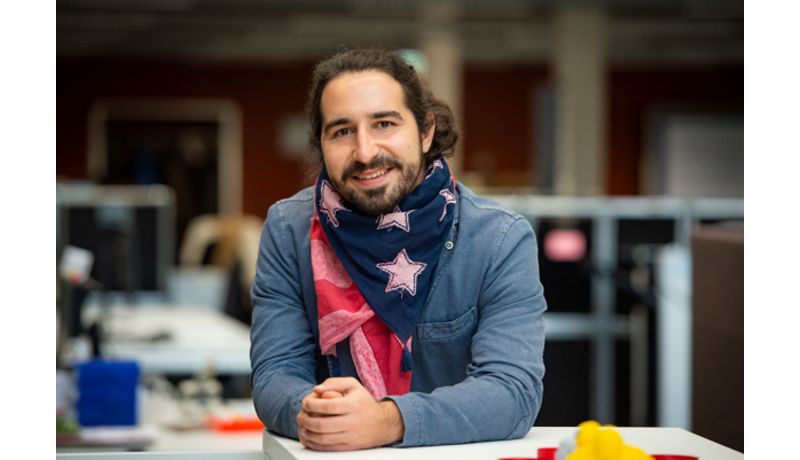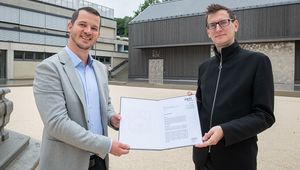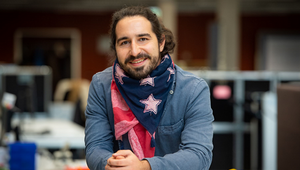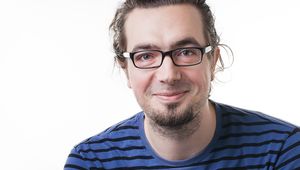JKU researchers Richard Küng and Stephan Pühringer are recipients of the coveted START Award.
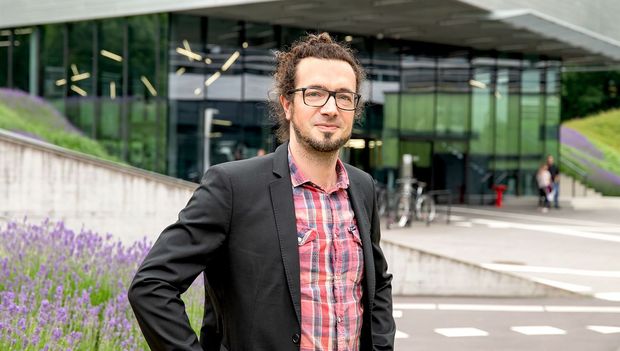
Junior researchers consider the Austrian Science Fund’s prestigious START Awards to be one of the most important, highly endowed awards. Two faculty members at the Johannes Kepler University Linz, Richard Küng and Stephan Pühringer, have each been presented with a highly coveted START Award. An international jury of experts selected their respective projects, "Quantum Converter" and "SETER".
JKU Rector Meinhard Lukas expressed delight with the jury's decision and remarked: "There is no doubt that to a great extent, the next generation of scientists and scholars will determine a university’s direction and future. The JKU is in an outstanding position in this areea as well, reflected by the winning the Austrian Science Fund’s START Awards. The process is extremely competitive, involving over 120 submissions. This year, two outstanding junior researchers at the JKU, Richard Küng and Stephan Pühringer, successfully prevailed! I am very pleased that JKU can attract this caliber of scholars and I would like to take this opportunity to congratulate both of the award winners on their phenomenal success. This is even more true as their research on implementing quantum computers, as well as providing an overall understanding of economic decision-making, has high social implications."
The Award-Winning "Quantum Converter" Project
The road to revolutionary quantum computers is paved with plenty of stumbling blocks. For example, large-scale quantum experiments require considerable computing power from conventional computers in order to control experimenting and process results. Expending resources impairs information transmission between quantum and conventional systems. In turn, this impedes the use of existing computer architectures and may even impact scaling of system sizes.
Assoz. Univ. Prof. Richard Küng's research project applies a consistent, unified approach that takes all of the computing technology resources (quantum and conventional computers) into consideration. In order to solve the transmission constraints, Küng and his team have developed scalable methods capable of converting quantum information into conventional information.
Called "q-shadows", these converters utilize randomization and quantum-enhanced readout strategies in order to obtain an accurate, classically-generated description of an underlying quantum system. The description simultaneously facilitates the quantum system’s many features more efficiently by means of next-generation quantum hardware that can describe real quantum effects. Küng added: "We are also bridging the gap between quantum-based experiments and (classical) artificial intelligence."
Consequently, the cross-disciplinary undertaking successfully combines methods taken from modern conventional computer science and quantum information. Küng's work has resulted in numerous groundbreaking publications, including a paper in Nature Physics (that received more than 550 citations), as well as two papers in “Science”.
Küng added: "The study’s findings will help expand the potential of quantum computing and drive the advancement of more reliable and efficient quantum computers forward. The START award funds the five-year project in the amount of € 1.2 million. This opens up new perspectives in regard to applications in various fields, such as simulation, optimization, and artificial intelligence."
About Richard Küng
Born in 1988, Richard Küng studied physics at the ETH Zurich. He completed his doctoral dissertation titled "Convex Reconstruction from Structured Measurements" summa cum laude at the University of Cologne (2016). He then spent three years conducting research at the renowned California Institute of Technology in the Los Angeles area. After 13 years abroad, the Linz native joined the JKU in 2020 as a professor for quantum computing. He is the recipient of numerous awards and accolades, including the ETH Zurich’s Willi Studer Award (2013), the Upper Austrian State Talent Promotion Award (2017), the Cardinal Innitzer Award (2022), and the Kepler Award for Teaching Innovation (2023).
The Award-Winning "SETER" Project
Concepts such as climate crisis, "predatory capitalism", and even the return of communist ideas, indicate just how much globalized humanity is struggling with transforming its economic structure into a sustainable economic ecosystem beneficial to both humans and nature. This sustainable, socio-economic transition (SET for short) lies at the heart of the SETER project (head: Dr. Stephan Pühringer, Institut für Gesamtanalyse der Wirtschaft at the JKU), which has now been presented with the START Award.
The expert economist remarked: "Transforming current socioeconomic regulations and institutions - meaning implementing SET – is critically dependent on economic thinking, which, in recent decades, has grown in political and social importance. That said, the manner in which the majority currently conducts economic research and policy deliberations are an obstacle to SET in many areas right now."
Referred to as mainstream ER (economic reasoning), this type of thinking is based on basic assumptions, such as the pursuit of economic growth, or a belief in the market’s perpetual efficiency. Although formative - influencing many economic and political decisions and everyday discourse – the impact of mainstream ER remains poorly researched in a scholarly capacity. The SETER project intends to change that.
SETER will first analyze concepts, models, and dynamics on various levels in an effort to understand how sustainable economics and economic thinking intersect. Afterwards, researchers will look at how different ways of thinking affect sustainability as well as implementing policies to support environmentally sound economic forms.
Pühringer added: "We are working across an interdisciplinary spectrum of scientific and academic fields." Sustainability scientists, sociologists, and political economists will each bring in their expertise, along with colleagues from Economists4future and the ZOE Institute for Sustainable Economies.
The START Award will support these endeavors by providing the ambitious five-year project with funding in the amount of € 1.2 million. Pühringer remarked: "The funding allows me to conduct the required research, contributing significantly to sustainably anchoring long-term interdisciplinary research at the JKU."
About Stephan Pühringer
Born in 1985 in Linz, Stephan Pühringer graduated from the JKU in 2015 magna cum laude with a PhD in "Economics". Following a stint at the University of Koblenz (Germany), he returned to the JKU in 2018 and now heads the interdisciplinary FWF Zukunftskolleg SPACE. He lives with his family in Engerwitzdorf and his hobbies include various sports, such as volleyball and running.
 Go to JKU Homepage
Go to JKU Homepage







